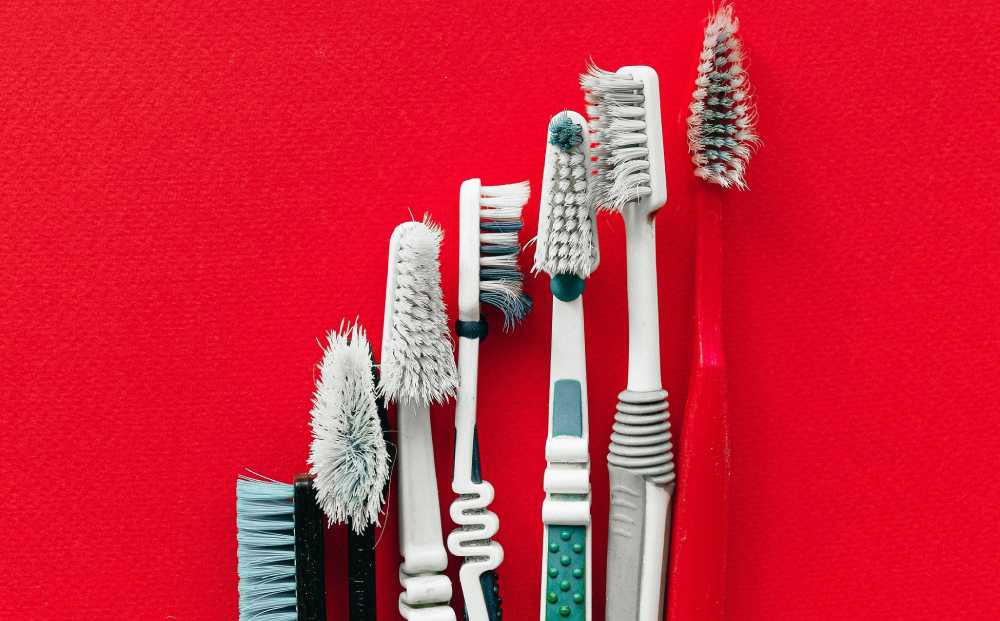
The most important tool in your oral health routine is your toothbrush. Without it, food particles and bacteria would stay in your mouth, causing bad breath, tooth decay and eventually tooth loss. To keep your brushing at its best, it’s recommended to regularly change out your toothbrush or toothbrush head but how often should you replace it and what happens if you don’t?
Replace your Toothbrush Regularly
Dentists usually recommend replacing your manual toothbrush or electric toothbrush head at least once every 3 months. This means chucking out the old one and opening a fresh new packet about every 12 weeks. You might not think it’s necessary to change your toothbrush so often but there are several reasons why:
-
They Lose Effectiveness
Every time you brush your teeth, the bristles wear down a tiny bit more. Eventually they will bend out of shape and not be effective in removing food debris and bacteria from your mouth.
-
They Get Dirty
Bacteria remains on the toothbrush after brushing so the longer you use it, the more bacteria it will collect.
-
They Can Become Moldy
A moldy toothbrush is not good for your oral health or health in general! If you use a toothbrush cover or case, ensure the toothbrush air dries first, otherwise you’re creating the perfect environment for mold to grow on your toothbrush.
Some Wear Down Faster Than Others
The three month recommendation is really the longest you should go between new electric toothbrush heads or manual toothbrushes. In many cases, toothbrushes will wear down even faster due to aggressive brushing, chewing on the bristles etc. If your toothbrush is showing obvious signs of deterioration, throw it away!They Can Make You Sick
It’s not that likely that you’ll become sick from using an old toothbrush but if you have had a cold or the flu, treat yourself to a brand new toothbrush or toothbrush head when you’ve recovered. In the same vein, do not share toothbrush heads or manual toothbrushes with other people as the bacteria in their mouth will be different to yours and you could catch something from them.
How To Look After Your Toothbrush
Now that we know how often to replace a toothbrush or electric toothbrush head, let’s take a look at how to keep your toothbrush in good condition until you need a new one.
- Don’t brush too hard as this will wear down the bristles faster, as well as being harsh on your gums.
- Don’t clean your toothbrush in mouthwash or hot water after use, just rinse it under the cold tap.
- Let your toothbrush air dry after use.
- It’s not necessary to use a toothbrush cover or cap as this can increase bacteria on your brush.
- If you're storing your brush with other people’s, make sure the toothbrush heads do not touch.
- If your toothbrush is starting to smell anything other than minty fresh, replace it with a new one.
Remember to Change or Replace Your Toothbrush Regularly
We get it – changing your toothbrush is not usually at the front of most peoples’ minds but a new toothbrush or toothbrush head improves your oral health which is beneficial for your overall health too. A good rule of thumb is to start the new year with a new toothbrush, then you can easily keep track of when you last changed it.
As we said before, though, sometimes it’s a good idea to replace your toothbrush earlier than suggested. Don’t hesitate to replace your toothbrush if it’s showing any of the following signs:
- Flattened, frayed or splayed bristles
- Discoloration
- A bad smell
- You can’t remember when you last changed it
Basically, it doesn’t hurt to change your toothbrush regularly but try to do it at least once every three months. Along with flossing and regular check ups at your dentist, your toothbrush plays a big part in keeping your teeth and gums healthy. If you want any more preventive dental treatment advice, patients in Marietta, GA can schedule an appointment with Kenmar Dental. Our professional and friendly team are always happy to help.

